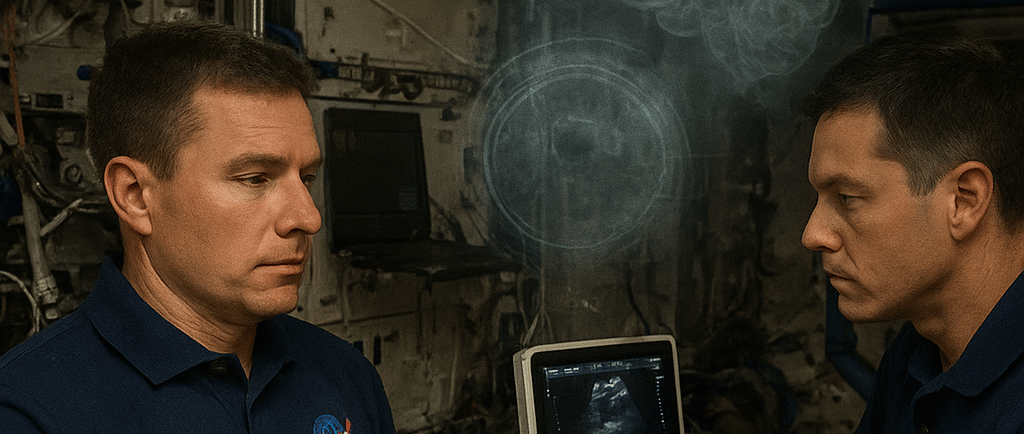NASA Warns: Microgravity Harms Astronauts’ Eyes & Brain Health
NASA research reveals microgravity impacts astronaut vision and brain pressure. New countermeasures aim to protect crews on Moon and Mars missions.
INTERNATIONALHEALTH
8/29/20251 min read


NASA Investigates How Microgravity Affects Astronaut Vision and Brain Pressure
August 28, 2025
NASA is advancing crucial research aboard the International Space Station (ISS) to better understand how microgravity impacts astronaut health, particularly vision changes and increased brain pressure. Alongside routine cargo management and emergency drills, astronauts are carrying out experiments designed to protect future space explorers on missions to the Moon and Mars.
Studying Fluid Shifts in Space
One of the biggest concerns in spaceflight is the headward fluid shift, a condition where body fluids move toward the upper body due to weightlessness. This often results in the so-called “puffy face” syndrome and, more seriously, can lead to Space-Associated Neuro-Ocular Syndrome (SANS)—a condition that alters vision by increasing pressure on the eyes and brain.
Thigh Cuff Experiment for Astronaut Safety
The latest investigation is being led by JAXA astronaut Kimiya Yui, who is testing a special thigh cuff device on NASA astronaut Mike Fincke. The cuff is designed to restrict blood flow in the legs, thereby reducing fluid buildup in the head.
To track results, Yui performed ultrasound scans of Fincke’s legs while monitoring his heart activity with electrodes, sending real-time medical data back to Earth. If successful, this technology could serve as an effective countermeasure to protect astronauts during long-duration missions.
Broader Research on Vision and Brain Pressure
Previous NASA studies, such as the Fluid Shifts experiment, revealed that factors like carbon dioxide levels and B-vitamin intake may influence the severity of SANS symptoms and even contribute to brain-related changes.
Additional international research has also shed light on the issue:
Canadian scientists (SANSORI study) discovered that space travel reduces eye tissue stiffness, resembling conditions linked to glaucoma on Earth.
Japanese researchers suggested that artificial gravity could help prevent harmful genetic changes in the eye.
Why It Matters
Understanding and counteracting these health risks is vital as NASA prepares for Artemis missions to the Moon and eventually, human exploration of Mars. Protecting astronaut vision and brain health is not only essential for crew safety but also for the success of future deep-space journeys.
Explore
Your lens into Pakistan's vibrant stories.
Connect
Discover
+92-300-0440097
© 2025. All rights reserved.
